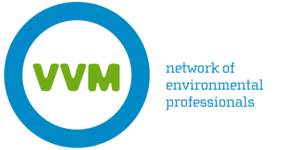IPCC Vice-Chair
IPCC Special Report on Global Warming of 1.5oC and emissions from non-CO2
The presentation will focus on the main findings in the IPCC Special Report on Global Warming of 1.5oC, particularly those related to the assessed mitigation pathways to limit warming to 1.5oC that not only imply in net zero CO2 emissions globally around 2050 but also concurrent deep reductions in emissions of non-CO2 forcers. Such mitigation pathways are characterized by energy-demand reductions, decarbonization of electricity and other fuels, electrification of energy end use, deep reductions in agricultural emissions, among others.
Co-Chair Global Environment Outlook-6: Healthy Planet, Healty People;
Full Professor Environment and Development in the GLobal South, University of Amsterdam
A healthy planet has sustained human populations for a long time. However, the increasing damage to the planet's health, including but not limited to climate change, is increasing the risks to human health. The Global Environment Outlook-6 (2019) presents the state of the art of current environmental risks faced world-wide; its underlying causes (drivers and pressures) and its impacts. It discusses the policy options and outlooks for the future. This presentation briefly covers the key challenges faced by the global community in integrating the environmental and climate change dimensions into development strategies and what this implies for global environmental justice.
Senior scientist SRON (Netherlands Institute for Space Research)
Endowed professor at VU Amsterdam
Co-Principal Investigator TROPOMI
Satellite observations complement the existing ‘groundbased’ network measurements for estimating methane emissions. The advantage of satellite observations is the global coverage, the challenge however is achieving the required accuracy as satellites measure the total column of methane in the atmosphere while the emissions occur at the surface. Much progress has been made in the past decade using satellite observations of methane where the focus was mostly on large-scale variations in atmospheric methane. With improving quality and availability of satellite data the applications shifted towards regional and even local scales. With the launch of the Dutch-ESA TROPOMI instrument in October 2017 a huge step forward is made combining high spatial resolution measurements (~7x7km2) with daily global coverage. This has the potential to detect and quantify large emissions from the fossil fuel industry (oil, gas, coal), but possibly also other localised sources of methane.
Senior scientist, NILU
Atmospheric measurements of GHGs track how well we are doing in terms of meeting the target of limiting global warming to below 2 degrees. Ultimately, emission mitigation strategies are only effective if they slow and eventually stop the increase of GHGs in the atmosphere. Top-down approaches reconcile the emissions with the observed atmospheric growth rate, that is, they provide a mass balance constraint on what the total emissions are. While top-down approaches cannot replace inventory methods, they should be part of the emissions stocktake process.
Head of Division 'Bio-Geo-Chemical Processes', Institute of Meteorology and Climate Research, Atmospheric Envurinmental Research (IMK-IFU), Karlsruhe Institute of Technology (KIT);
Principle Scientist, International Livestock Research Institute (ILRI), Nairobi, Kenya
So far relatively little is known about the source strength of African terrestrial ecosystems for N2O and CH4, mainly due to a lack of respective measurements. However, the African continent is home to approx. ¼ of global cattle population, and emissions from the livestock sector are a dominating source within many national GHG inventories of African countries. Moreover, N2O emissions from crop production, which seem currently to be negligible, might increase exponentially with increased use of fertilizer.
Establishing baselines of current emissions and developing strategies for increasing agricultural production under the auspices of climate change, while reducing its environmental costs, incl. GHG footprints, is a key challenge, which requires the establishment of knowledge hubs and research capacities.
This presentation summarizes some current findings about GHG emissions from natural and managed systems, including the livestock sector, and reports about progress in establishing relevant infrastructure in East Africa.
Lutz Merbold, ILRI, is a co-author on this key note.
TNO
Water Systems and Global Change Group, Wageningen University & Research
WIMEK Graduate School
NCGG9 is organized by:
p/a UCo
2e Daalsedijk 6a
NL-3551 EJ UTRECHT
The Netherlands
T +31 (0)30 - 232 29 89
E eciffo@ncgg.info

Stichting MilCon (Foundation for Environmental Congresses, a separate legal entity that is linked to VVM) is responsible for the logistic and financial management of NCGG9. The contents of the symposium is the responsibility of VVM and its co-organisers. Logistic services for NCGG9 will be provided by the VVM-bureau.